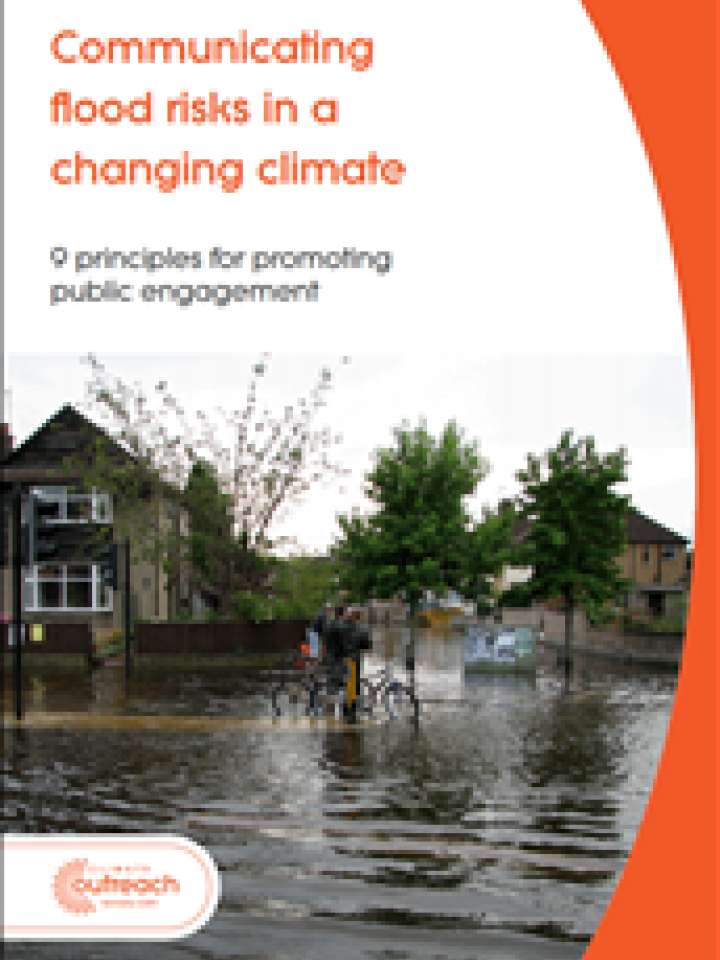Communicating flood risks in a changing climate: 9 principles for promoting public engagement
This is a practical resource for campaigners, policy makers and those working with communities directly affected by flooding. Its purpose is to help build community resilience for future climate impacts as well as develop more productive conversations about climate change within the context of flooding.
The report represents a powerful statement from a diverse cross-section of experts. It is the result of a workshop which brought together key voices on communicating flood risks including 27 climate scientists, social scientists, representatives from major NGOs and national policy makers who have endorsed the report.
This document presents the following nine principles for public engagement:
- Climate scientists can quantify the role of human influence in individual flooding events; specifically whether they are made more or less likely in a changing climate;
- There is growing evidence that flooding and climate change are linked in the public mind;
- Conversations about climate change should ideally happen before (not during) flood events when communities are under pressure;
- Communication and engagement around flood events must be carried out sensitively, or they will backfire;
- Statistical information and accurate scientific data are crucial, but trusted ‘peer’ messengers and personal stories are vital for achieving public engagement;
- Flooding and climate impacts cannot be separated from the wider social context that determines communities’ ability to cope with stress and trauma;
- Communities that have been affected multiple times offer powerful opportunities for learning (but also have a right to forget);
- It is important to strike the right balance between the ‘local’ and ‘global’ aspect of flooding (as a climate impact);
- Communications should empower people to respond and adapt to future flood risks - focusing on preparedness and support rather than ‘getting back to normal’.
Explore further
